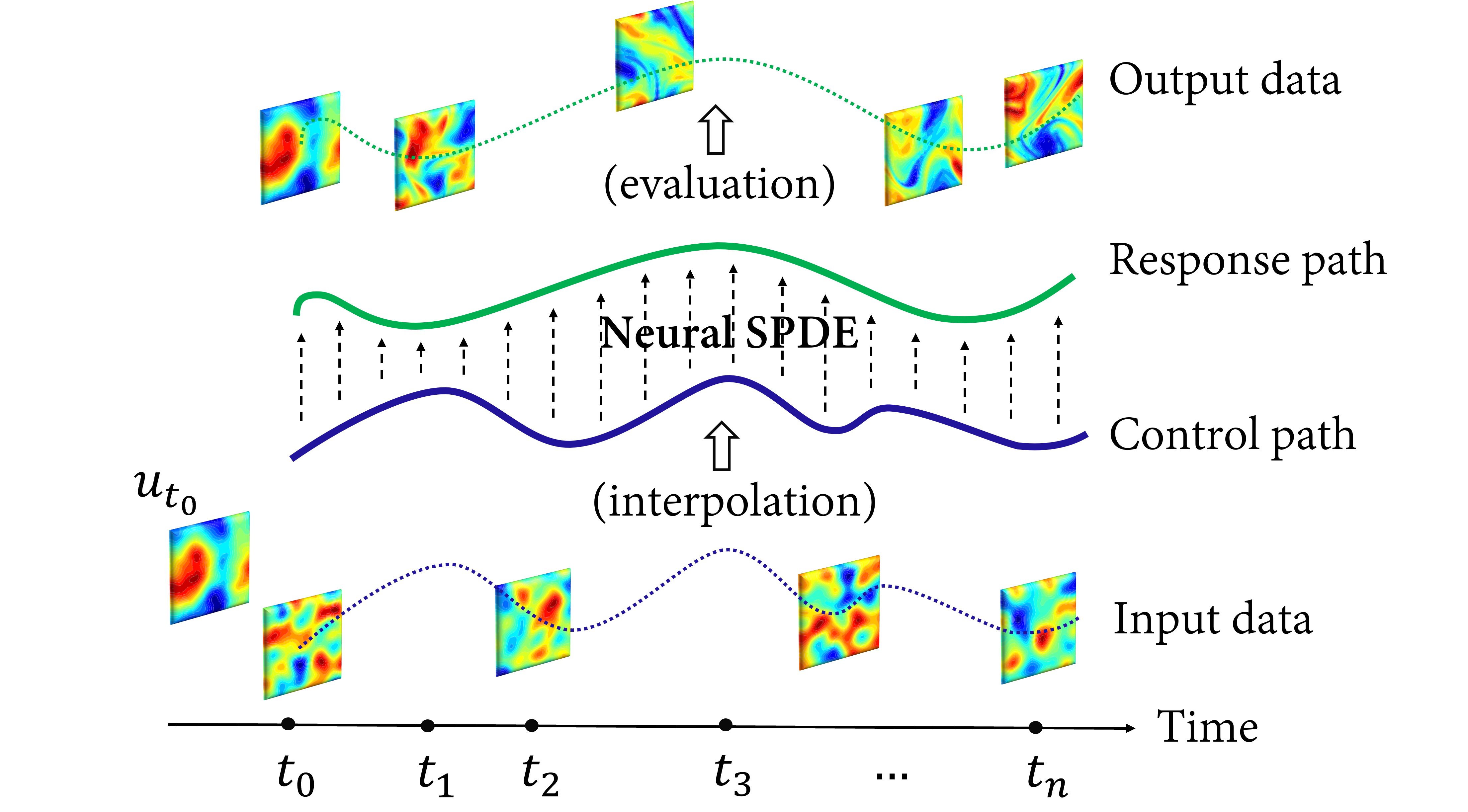Neural SPDEs
Resolution-Invariant Learning of Continuous Spatiotemporal Dynamics
Stochastic partial differential equations (SPDEs) are the mathematical tool of choice for modelling spatiotemporal PDE-dynamics under the influence of randomness. Based on the notion of mild solution of an SPDE, we introduce a novel neural architecture to learn solution operators of PDEs with (possibly stochastic) forcing from partially observed data. Experiments on various semilinear SPDEs, including the stochastic Navier-Stokes equations, demonstrate how the Neural SPDE model is capable of learning complex spatiotemporal dynamics in a resolution-invariant way, with better accuracy and lighter training data requirements compared to alternative models, and up to 3 orders of magnitude faster than traditional solvers.
Structure of the repository
datafolder: contains notebooks to generate various datasets (stochastic Ginzburg Landau, KdV, Navier-Stokes) using numerical solvers for SPDEs (finite difference and spectral Galerkin methods)torchspdefolder: contains the implementation of the Neural SPDE (NSPDE) modelbaselinesfolder: contains the implementation of various models (NCDE, NRDE, FNO and DeepONet) to benchmark NSPDEexamplesfolder: contains notebooks to train and evaluate an NSPDE (and baselines models) on different SPDEs (seeexample_Ginzburg_Landau.ipynb), and benchmark the NSPDE model (example_hyperparameter_grid_search.ipynb)
Access to datasets
The datasets for the experiments can be generated using the notebooks in the data folder. Alternatively they can be downloaded using the following link.
